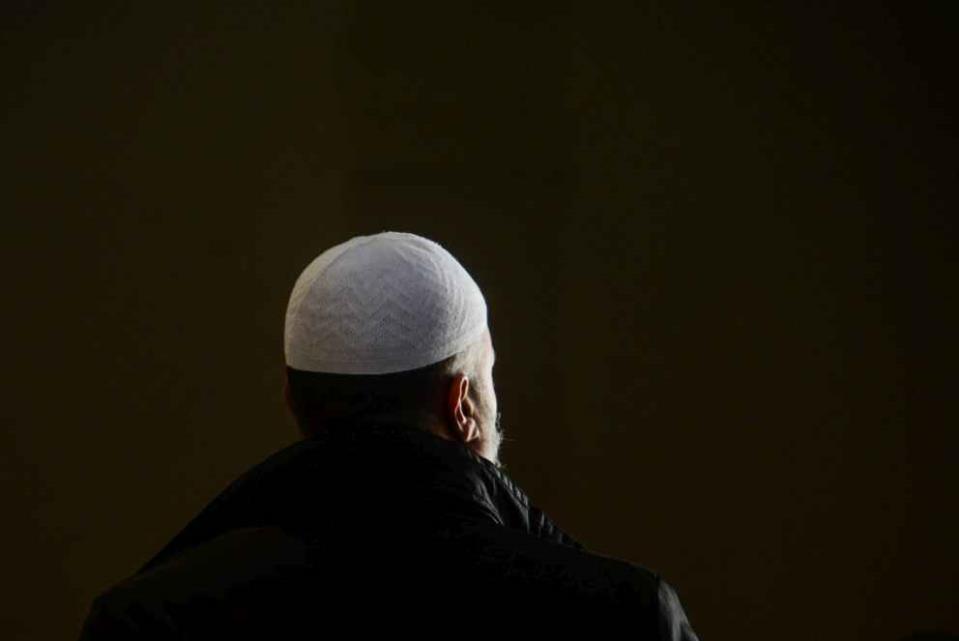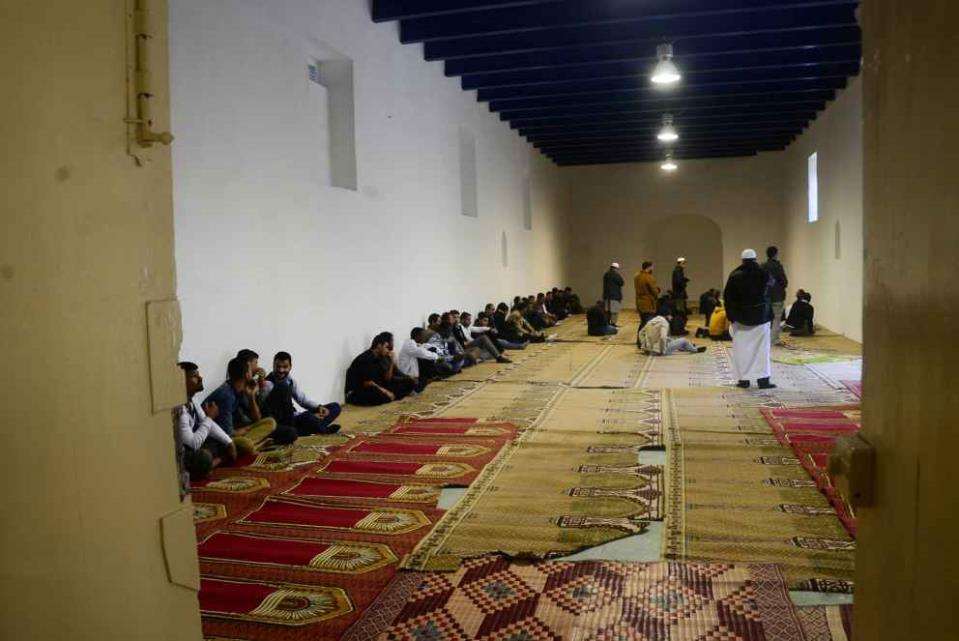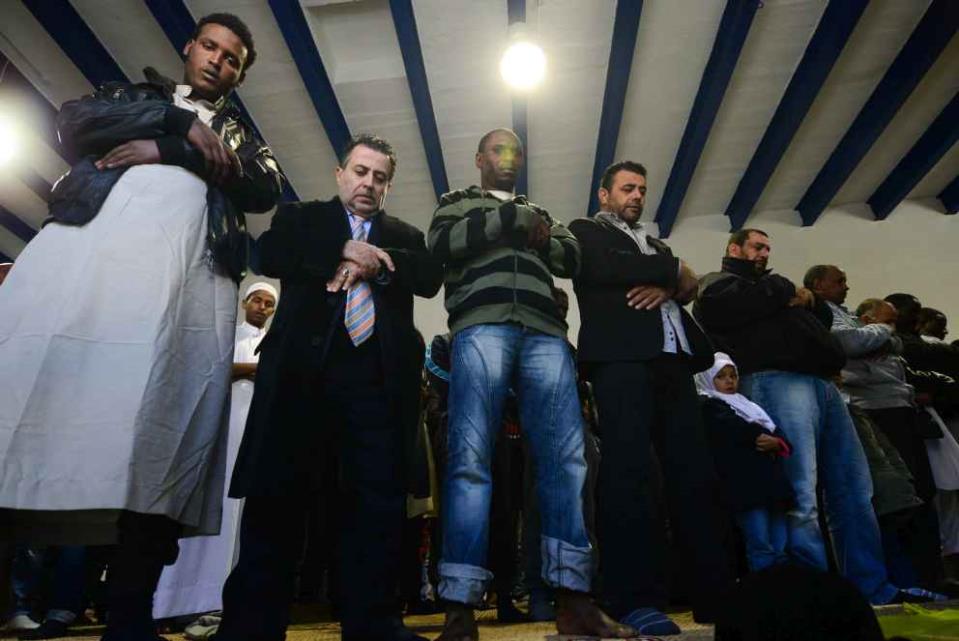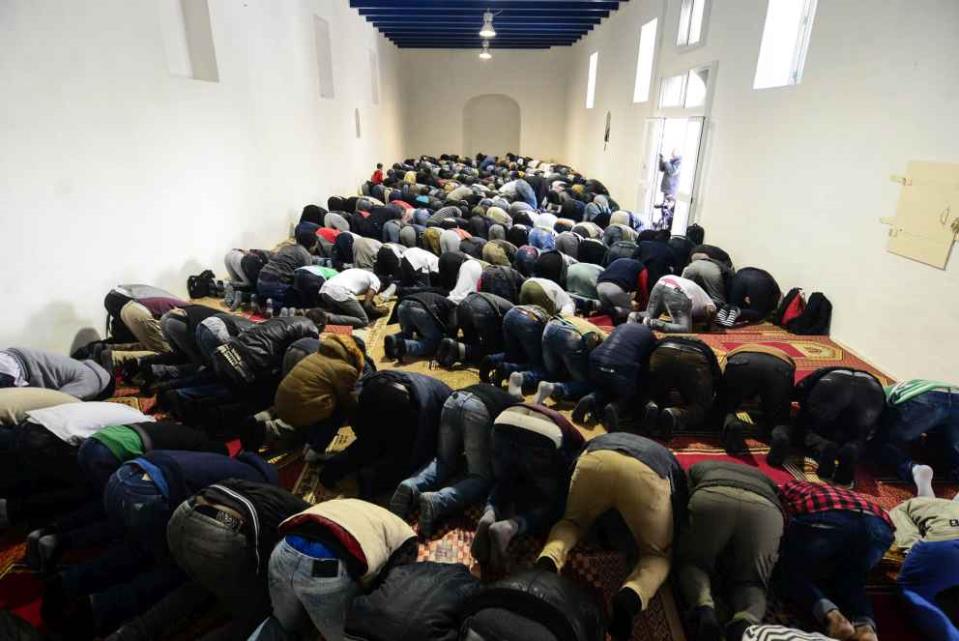“The people who run Muslim prayer rooms love this country. They have set up these places on their own initiative to pray, preach and educate people, especially newcomers, about this country, its laws, regulations and traditions. I don’t think that is the kind of person who would want to preach extremism.”
Mr Zeina was referring to a story published recently by The Malta Independent, which quoted government sources as saying they favoured a second mosque, rather than several prayer rooms to avoid the possibility of undetected extremism.
“Islam does not have extremes. Extremism comes either from the media or from people who are, in reality, far from Islam.”
Mr Zeina says the answer is regulation. “I do not agree that if we have prayer rooms across the country it will lead to extremism. They should be regulated. We, the people who run these places, have to be regulated. If we are in constant contact with the state and the government knows who we are the possibility of extremism will be completely eliminated.

“I had spoken about this with (Social Dialogue) Minister Helena Dalli. She told me the government’s main concern was the possibility of extremist elements going undetected. She told me he was convinced by my argument about regulation.”
Another mosque is not the solution right now
Mr Zeina believes the construction of a new mosque, although not a bad idea, will not cater for the needs of all Muslims living in Malta. “What we need is places of congregation, where people can meet for prayer and teaching. We can have another mosque in the north but what about the people who live in the middle?”
The best option, he said, was to have small prayer rooms at a community level, pointing out a recent example of cooperation which saw the Mater Dei management give permission for the hospital’s multi-faith room to be used for Friday afternoon prayers. Mr Zeina also insists on the need for a study on the needs of the growing Maltese Muslim community.

Asked what was keeping the Muslim community from buying a piece of land and applying for the necessary planning permits Mr Zeina said it did not make sense to spend a fortune when it was clear that the application would be refused.
The feeling that the planning authority was being “unfair” to the Muslim community has its roots in the prayer rooms saga, which has now been going on for around 20 years. It was the main reason which led to the controversial Msida open-air prayers.
Mr Zeina explains that the problem started back in 2001. He says a number of places had to be closed down because they lacked the necessary permits. But he insists that this was not the community’s fault. Part of the blame, he says, has to be attributed to the planning authority. MEPA, Mr Zeina says, has not been particularly helpful to the Muslim community.

“We had tried to apply for a change of use of a residential property to one of religious congregation but they (MEPA) told us no such application existed. Then their enforcement officers came and told us we had to vacate the property because the permits were not in order.”
He says MEPA had a duty to help them out by pointing out which form they had to fill. “Instead of telling us that we had to apply for a multi-purpose hall permit they said they didn’t have what we were asking for. They are the authority. They had a duty to guide us through the process.”
Eventually the Malta Muslim Council found a place in Santa Venera and filled the correct forms for a change of use to a multipurpose hall. The case officer recommended approval but the local council thought otherwise, Mr Zeina says. “They objected on two grounds. The first objection was that this would lead to traffic problems and the second was that the building would be used as a mosque. A prayer room is very different from a mosque – it does not have a minaret and other features found in the latter. It is really just a place where people meet to pray and learn. In our opinion the council’s objections were unfair.”

Muslims need congregation places
He pointed out that Muslims need to have a place to congregate for prayers. All prayers are supposed to be held in congregation but exceptions can be made. However, there is no exception for Friday prayers.
“The mosque in Paola is simply not big enough. The pictures we have seen showing the ‘large’ outdoor area do not show that the place is full of cars during prayer times. Besides, not everyone lives near Paola.”
Mr Zeina continued that MEPA eventually refused permission for the Santa Venera house because of the council’s objections. An appeal was filed and the group started meeting in a property in Msida until a decision was made. MEPA came knocking again and gave them 15 days to vacate the building.
“All we asked for was more time until the Santa Venera appeal was heard. The answer was no. We know that MEPA had no choice since there was no change of use permission in Msida but these things cost money and we had already been given the impression that the permit would have been refused in any case.”
After another place was evicted by MEPA, the Malta Muslim Council decided that the only option was to pray out in the open. The group chose to hold prayers in Msida, in an open area near the parish church. The rest is history.

“We did not choose the place to antagonise anyone. We chose it for three reasons: access by public transport, parking and capacity. The proximity to the church has nothing to do with the choice of place. We respect Catholic places of worship. The mosque in Paola is located opposite a church and there has never been an issue with that.”
He denied that the place was chosen to spark a reaction and pressure the government into finding a solution for them. “It is not our intention to create a controversy. In Sliema and Bugibba we prayed on the seafront. We prayed in the places available to us, come rain or sunshine.”
A ray of hope emerged in the past few days following a meeting between the Malta Muslim Council and three government ministers – Helena Dalli, Owen Bonnici and Evarist Bartolo. Muslims will for now be praying at the Ospizio site in Floriana but the government has “expressed strong signs of will to find a permanent solution,” according to Mr Zeina.
Prayer keeps you on the right path
Me Zeina insists that the prayer rooms have more than one purpose. “These communities are doing a lot of good work in society – voluntary work with the sick, the poor and people in need of help. We have been doing this for many years. We also use these places to educate people, especially newcomers, about Malta, its values and traditions, the laws and how they should behave.”

“We also have a very dedicated person who has been delivering sermons in prison for over 20 years. We do the same when migrants arrive in Malta and have also helped the Maltese detention authorities understand the needs of Muslims better.”
They also help Muslims keep to their obligatory prayers. Mr Zeina explained how Muslims are required to pray five times a day. The time windows shift according to sunrise time. (By coincidence, at this point it was Mr Zeina’s time to pray and the interview was stopped for a few minutes until he had fulfilled his religious duty.) “Prayer is important,” he said, when he had finished. “It keeps us on the right path. You see, it is harder to sin if you have just promised God that you will be a good person a few minutes earlier.”
Me Zeina said the strict time windows were one of the difficulties Muslims face in non-Muslim countries. Not all employers are willing to grant Muslim employees some time off for prayers. “Some employers try to help but others are completely unreasonable. In such cases the council acts as an intermediary and is usually successful in finding an agreement. Friday prayers, like everyday prayers, are sacred and a Muslim’s responsibility.”

Why do people fear Islam?
According to Mr Zeina, there are four main reasons why people tend to fear Muslims. “There is fear, a lack of information, the media and education. We need to open more doors. If we do more interviews like this one and explore why people are so afraid of Islam we can remove this fear. If you open the door to a dark room you will hesitate to go in, not knowing what is inside. It is natural. But if I switch on the light for you to see that it is empty that fear will go away. The next time will be much easier.”
Many Maltese, we pointed out, feel that foreigners do not respect our laws and want to impose their way of life on the country. Mr Zeina pointed out that people come to Malta from different backgrounds and cultures. “Some are committed to their religion and live a life of peace in their new surroundings. In the case of others culture might override religion. That is why we use the prayer rooms to try to soften these people up – to show them that their culture is very different to ours but they are in Malta now.”
“You can ask people what they think of Bader and they would tell you he is ‘tal-genn.’ But you can ask the same people how they feel about Muslims in general and they will frown. I am not speaking about Malta but in general. I lived in Egypt, Kuwait – these things exist everywhere. This is the result of a lack of communication. Many times it is an issue of culture.”

He also argued that there is a big difference between countries. “People coming from sub-Saharan countries might have very different cultures and a lower level of education. North African culture is different to that of the Middle East, South Africa, Somalia ….. The beautiful thing is that all these people can come together through Islam, even if it is not always easy getting past the first barrier.”
The Maltese, like other peoples, also tend to generalize. “When we think of migrants we immediately think Muslims. But not all migrants are Muslims and not all Muslims have the same culture. At the end of the day those who apply to live in Malta enter an agreement that they are willing to obey Maltese laws. Whether you obey the laws or not is your own choice but you would be sinning before God if you do not.”
Let us work together, for our children
Mr Zeina appealed to all Maltese, whether Christian, Muslim or non-religious, to work together for the betterment of the country.

“Let us all live in peace, take this country forward and be a good advert for foreigners. Malta has already been declared the third best place in the world to live in – why not climb to number 2? The number of people who bought Maltese citizenship is small but why not increase that number? I am not saying this to increase to increase the number of Muslims in Malta. But we have already attracted rich people who have many good contacts. Attracting more people of the sort can only lead to a stronger economy. This can only happen if we understand each other more, help each other and improve education. At the end of the day everyone’s children are involved in the picture.”
Pictures: Jonathan Borg and James Bianchi, Video: Matthew Agius